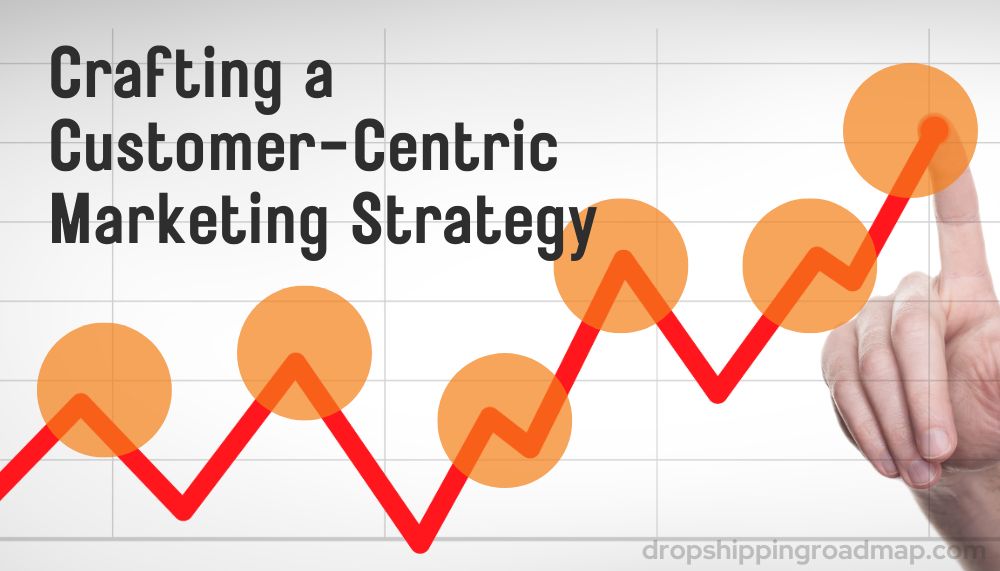In the dynamic world of e-commerce, building strong customer relationships is the key to unlocking lasting success.
As online shoppers have an abundance of options at their fingertips, fostering meaningful connections and delivering exceptional experiences become paramount.
This is where the power of Customer Relationship Management (CRM) techniques comes into play.
CRM is a strategic approach that harnesses data, technology, and processes to nurture customer interactions and enhance satisfaction.
By implementing the right CRM technique, e-commerce businesses can gain a comprehensive understanding of their customers, anticipate their needs, and provide tailored solutions that exceed expectations.
This comprehensive guide delves into the world of CRM techniques, exploring their nuances and applications within the e-commerce realm.
From operational efficiency to data-driven insights and customer engagement, we’ll uncover the best practices and strategies to help you master the art of customer relationship management and propel your e-commerce business to new heights.
Article Contents
- 1 Which Type Of Crm Technique Is Best For E-Commerce Companies
- 2 Key Takeaways: Which Type Of CRM Technique Is Best For E-Commerce Companies
- 3 Understanding CRM Techniques for E-Commerce
- 4 Key benefits of collaborative CRM
- 5 Factors to Consider When Choosing a CRM Technique
- 6 Best Practices for Implementing CRM Techniques (300 words)
- 7 Conclusion
- 8 FAQs on Which Type Of CRM Technique Is Best For E-Commerce Companies
Which Type Of Crm Technique Is Best For E-Commerce Companies
For e-commerce companies, the Analytical CRM technique is often considered the most suitable approach.
It leverages data analysis and customer insights to drive personalization, targeted marketing, and customer segmentation strategies.
By understanding customer behavior, preferences, and purchase patterns, e-commerce businesses can tailor their offerings, recommendations, and communications to deliver a highly personalized and engaging experience, ultimately fostering long-lasting customer relationships and driving growth.

Key Takeaways: Which Type Of CRM Technique Is Best For E-Commerce Companies
- Building strong customer relationships is crucial for e-commerce success in today’s competitive landscape. CRM techniques help businesses nurture meaningful connections and deliver exceptional experiences.
- Analytical CRM is particularly valuable for e-commerce companies, as it leverages data analysis and customer insights to drive personalization, targeted marketing, and customer segmentation strategies.
- By understanding customer behavior, preferences, and purchase patterns, e-commerce businesses can tailor their offerings, recommendations, and communications to deliver a highly personalized and engaging experience.
- Implementing the right CRM technique allows e-commerce companies to anticipate customer needs, provide tailored solutions, and ultimately foster long-lasting customer relationships and drive growth.
- This comprehensive guide explores the nuances of CRM techniques, best practices, and strategies to help you master the art of customer relationship management and propel your e-commerce business to new heights.
Now, let’s dive into the world of CRM techniques and explore how you can leverage them to create a customer-centric e-commerce experience that truly resonates with your audience.
Understanding CRM Techniques for E-Commerce
In the ever-evolving landscape of e-commerce, leveraging the right Customer Relationship Management (CRM) technique can be the difference between simply surviving and truly thriving.
To fully comprehend the potential of CRM, it’s essential to explore the three primary techniques: Operational CRM, Analytical CRM, and Collaborative CRM.
Operational CRM
Operational CRM is the backbone of efficient customer interaction management. This technique focuses on streamlining and automating processes related to sales, marketing, and service operations.
By centralizing customer data and integrating various touchpoints, e-commerce businesses can seamlessly handle orders, track inventory, and ensure a smooth customer journey from start to finish.
Take, for instance, the e-commerce giant Amazon. Their operational CRM system seamlessly integrates order processing, fulfillment, and customer support, enabling them to deliver a consistent and efficient experience across their vast product catalog.
Analytical CRM
In the age of data-driven decision-making, Analytical CRM has emerged as a game-changer for e-commerce businesses.
This technique harnesses the power of data mining, predictive analytics, and customer segmentation to uncover valuable insights into customer behavior, preferences, and purchase patterns.
By leveraging analytical CRM, e-commerce companies can:
- Personalize product recommendations and marketing campaigns
- Identify cross-selling and upselling opportunities
- Optimize pricing strategies and promotions
- Enhance customer retention and loyalty programs
Online retailer Sephora is a prime example of the effective implementation of analytical CRM. Their “Color IQ” system analyzes customers’ skin tones and provides personalized product recommendations, resulting in a highly engaging and tailored shopping experience.
Collaborative CRM
In today’s social media-driven world, Collaborative CRM has become an indispensable tool for fostering customer engagement and building a loyal community.
This technique empowers e-commerce businesses to interact with customers across various channels, gather feedback, and co-create products or services.
Key benefits of collaborative CRM
- Seamless integration of social media platforms and online communities
- Effective management of customer inquiries and complaints
- Opportunity for crowdsourcing and co-creation
- Improved brand loyalty and advocacy
Fashion e-commerce brand Revolve has mastered the art of collaborative CRM. Their vibrant social media presence and influencer collaborations have cultivated a dedicated community of fashion enthusiasts, driving customer engagement and brand loyalty.
By understanding and leveraging the strengths of each CRM technique, e-commerce businesses can craft a holistic strategy that aligns with their unique goals and customer needs, paving the way for long-term success in the dynamic e-commerce landscape.
Factors to Consider When Choosing a CRM Technique
While understanding the various CRM techniques is crucial, selecting the most appropriate approach for your e-commerce business requires careful consideration of several key factors.
By aligning your CRM strategy with your unique business goals, customer preferences, and resources, you can maximize the impact and ensure a seamless integration into your operations.
Business Goals and Objectives
Before embarking on the journey of implementing a CRM technique, it’s essential to clearly define your business goals and objectives.
Are you primarily focused on increasing sales and revenue? Or perhaps improving customer retention and loyalty is your top priority?
By aligning your CRM strategy with your overarching business objectives, you can make informed decisions and measure the success of your efforts.
For instance, if your primary goal is to boost sales, an analytical CRM approach that leverages data-driven insights for targeted marketing and personalized product recommendations might be the most suitable choice.
Conversely, if customer retention is your main focus, a collaborative CRM strategy that fosters engagement and builds a loyal community could be the way to go.
Customer Behavior and Preferences
In the e-commerce realm, understanding your customers is paramount. Analyzing their behavior, preferences, and pain points can provide invaluable insights into which CRM technique will resonate most effectively.
By tailoring your approach to meet their expectations, you can deliver a truly personalized and engaging experience.
For instance, if your customer base values seamless and efficient transactions, an operational CRM technique that streamlines order management and customer support processes might be the best fit.
On the other hand, if your customers prioritize social interaction and community-driven experiences, a collaborative CRM approach could be the key to fostering long-lasting relationships.
Resources and Budget
Implementing a comprehensive CRM strategy is an investment that requires careful consideration of your available resources and budget.
Different CRM techniques may have varying costs associated with software, hardware, training, and maintenance.
It’s crucial to evaluate the cost and resource requirements of each approach and balance them against the potential returns on investment (ROI).
Additionally, scalability and future growth projections should be factored into your decision-making process to ensure a sustainable and adaptable CRM strategy.
By thoughtfully weighing these factors, you can make an informed choice that aligns with your e-commerce business’s unique needs, positioning you for success in the competitive e-commerce landscape.
Best Practices for Implementing CRM Techniques (300 words)
Selecting the right CRM technique is just the beginning – effective implementation is key to unlocking its full potential.
To ensure seamless integration and maximize the benefits of your chosen CRM approach, it’s essential to follow best practices and adopt a strategic mindset. Here are some crucial considerations:
Data Integration and Management
The foundation of any successful CRM strategy lies in data integration and management.
Consolidating customer data from various sources, such as website interactions, social media, and past purchases, is crucial for building a comprehensive view of your customers.
Ensuring data quality and security should be a top priority to maintain trust and comply with regulations.
Leveraging advanced data analytics tools and techniques can further enhance your CRM efforts by uncovering valuable insights and patterns that might otherwise go unnoticed.
By integrating data effectively, you can make informed decisions, personalize experiences, and drive customer satisfaction.
Training and Adoption
Implementing a new CRM system is not just a technological endeavor; it’s a cultural shift that requires buy-in from your entire organization.
Providing comprehensive training and fostering a customer-centric culture is essential for successful adoption and long-term success.
Encourage collaboration across departments and ensure that everyone understands the value and importance of the CRM approach.
Empower your employees with the necessary tools and knowledge to leverage the CRM system effectively, ultimately delivering a consistent and exceptional customer experience.
Continuous Improvement and Optimization
CRM is an ongoing journey, not a one-time destination. Regularly monitoring and measuring the performance of your CRM efforts is crucial for identifying areas for improvement and optimizing your strategies.
Gathering customer feedback and analyzing metrics like customer satisfaction, retention rates, and revenue can provide valuable insights into the effectiveness of your approach.
Embrace an iterative mindset and be prepared to refine and adapt your CRM strategies based on the results and evolving customer needs.
Continuously seek opportunities for improvement and stay ahead of the curve by incorporating emerging technologies and industry best practices.
By adhering to these best practices and fostering a culture of continuous improvement, you can ensure that your CRM implementation is a resounding success, propelling your e-commerce business toward sustainable growth and lasting customer loyalty.
Conclusion
In the ever-evolving landscape of e-commerce, mastering the art of customer relationship management is not just a competitive advantage – it’s a necessity for long-term success.
By choosing the right CRM technique and implementing it effectively, you can unlock a world of opportunities to foster meaningful connections, deliver personalized experiences, and build a loyal customer base.
Throughout this comprehensive guide, we’ve explored the nuances of operational, analytical, and collaborative CRM techniques, highlighting their unique strengths and applications within the e-commerce realm.
We’ve delved into the key factors to consider when selecting a CRM approach, ensuring alignment with your business goals, customer preferences, and available resources.
Additionally, we’ve shared best practices for seamless implementation, emphasizing the importance of data integration, employee training, and continuous optimization.
By embracing these strategies and adopting a customer-centric mindset, you can navigate the dynamic e-commerce landscape with confidence and agility.
As the future of e-commerce continues to evolve, the ability to adapt and innovate will be paramount.
Remain vigilant, stay attuned to emerging trends and technologies, and be prepared to refine your CRM strategies accordingly.
Embrace a mindset of continuous learning and improvement, and you’ll be well-positioned to thrive in this ever-changing digital realm.
Mastering customer relationships is a journey, and with the right CRM technique by your side, you can embark on a path towards unparalleled success, fostering loyal customers and driving sustainable growth for your e-commerce business.
FAQs on Which Type Of CRM Technique Is Best For E-Commerce Companies
Q: How can e-commerce businesses ensure data privacy and security when implementing CRM techniques?
A: Implement robust data protection measures, such as encryption, access controls, and regular security audits. Obtain explicit consent from customers and comply with data privacy regulations like GDPR and CCPA.
Q: Is it possible to combine multiple CRM techniques for an e-commerce business?
A: Yes, many e-commerce businesses adopt a hybrid approach, leveraging different CRM techniques for specific aspects of their operations. For example, using operational CRM for order management and analytical CRM for customer segmentation and personalization.
Q: What role does artificial intelligence (AI) play in modern CRM strategies?
A: AI and machine learning can significantly enhance CRM capabilities by automating processes, analyzing large datasets, and providing predictive insights. Chatbots, recommendation engines, and predictive analytics are just a few examples of AI-powered CRM applications.
Q: How can e-commerce businesses measure the success of their CRM implementation?
A: Key performance indicators (KPIs) like customer retention rates, customer lifetime value, average order value, and customer satisfaction scores can help evaluate the effectiveness of your CRM strategy. Regularly review these metrics and adjust your approach as needed.
Q: How can e-commerce businesses foster a customer-centric culture to support their CRM efforts?
A: Encourage open communication and collaboration across departments, provide ongoing training and incentives for customer-focused initiatives, and lead by example by prioritizing customer needs in decision-making processes.
Q: What are some common challenges faced when implementing CRM techniques in e-commerce?
A: Common challenges include data silos, resistance to change, lack of employee buy-in, Integration issues with existing systems, and limited resources for training and maintenance. Addressing these challenges proactively is crucial for a successful CRM implementation.
We’ve reached the conclusion of the article Which Type Of CRM Technique Is Best For E-Commerce Companies. I hope you found it enjoyable. Thank you for stopping by.



